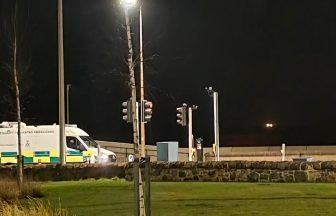A pilot scheme which saw “minor” police reports not investigated has been hailed as a success.
Police Scotland trialled a scheme in the Aberdeen and Aberdeenshire areas last year which saw crime reports where there were no leads for officers to pursue not investigated.
In a bid to free up frontline officers to tackle more serious crimes, minor offences such as vandalism or anti-social behaviour could be written off if the scheme is rolled out.
A decision on whether further inquiries should be carried out would be made following an “assessment” of the initial report.
Police chiefs have said the pilot allowed them to better manage victim and public expectation.
At a public board meeting of the Scottish Police Authority, chief constable Jo Farrell said: “What this seeks to do is look at alternative approaches to the way in which we investigate and manage crime, much with a focus in relation to the experience of the victim, a wider focus around efficiency, and the victim experience.
“What it is not is a policy of non-investigation – so I just wanted to be clear that we are committed to investigating crimes, but we want the reporting of those crimes to be easy to do and for those investigations to be proportionate and appropriate.”
Police Scotland ceputy chief constable Malcolm Graham suggested “less than 5%” of overall reported crime was deemed to have no lines of inquiry to pursue.
He added: “Based on our findings from this early pilot period in Aberdeen and Aberdeenshire, the key that lies behind it is that every crime report is the subject of individual assessment and that won’t change. Clearly, there are extremes in that – we would put far more resource into murder or a rape investigation than would be put into a report of anti-social behaviour in a local community.
“If there are no lines of inquiry that can be pursued, then we shouldn’t be, in some ways, setting up an expectation of the things that police can do – we can’t pursue lines that don’t exist, and in some respects it’s as simple as that.”
Mr Graham said results from the pilot have been “positive” and that the force had been “able to better manage victim and public expectation”.
Martyn Evans, chair of the Scottish Police Authority, asked for further information on how the force will double check its decisions on whether to investigate a report and where the HR savings would be allocated to be brought before the board at a future meeting.
A Police Scotland spokesperson said: “The Proportionate Response to Crime pilot concluded on November 20, 2023, we have undertaken a full evaluation and we are now engaging with partner organisations before considering next steps.”
Follow STV News on WhatsApp
Scan the QR code on your mobile device for all the latest news from around the country


























